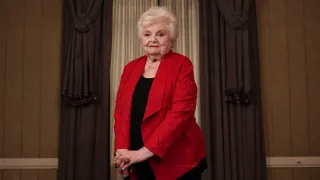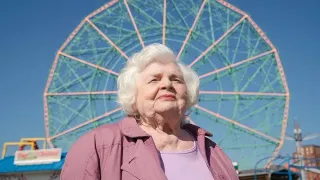May 7, 2016
Honoring Patty Duke
David-Elijah Nahmod READ TIME: 3 MIN.
Film-lovers were shocked by the unexpected passing of actress Patty Duke on March 29. At the time of her death, Duke, 69, had amassed more than 125 credits at Internet Movie Database. She had won an Oscar, two Emmys and a People's Choice Award.
She had also won the respect of millions for her mental health advocacy. In 1983, Duke was diagnosed with manic depression, now known as bipolar disorder. Duke spent the rest of her life using her celebrity to advocate for mental health. Beginning with her courageous 1987 autobiography "Call Me Anna," she spoke openly and honestly about the manic episodes which nearly destroyed her career and ended her marriage to actor John Astin. For three decades she appeared on television and before groups large and small to address mental health. She let millions know they need not be ashamed, and that recovery was possible.
On May 10, the Castro Theatre will honor Duke's memory with screenings of her two best-known films. "The Miracle Worker" (1962) will show at 6 p.m. Duke won an Oscar for her mesmerizing portrayal of Helen Keller, a real-life blind/deaf girl who learned how to speak and communicate with the help of her teacher, Annie Sullivan (Anne Bancroft). "Valley of the Dolls" (1967), a melodrama about pill-popping showgirls in Hollywood, will screen at 8 p.m. A wonderfully over-the-top campfest with a huge gay following, "Dolls" was shown at the Castro in 2009 with Duke in attendance. That magical evening was produced by Marc Huestis, who tells the B.A.R. he'll be helping out at the May 10 tribute. He speaks fondly of his friend Anna, Duke's real name.
"The evening event was a dream come true, both for Anna and me," Huestis recalls. "As she exited her limo, Anna looked terrific. At 62, she courageously looked her age, her face uninjected and unpulled. Chock-full of character. Her aura was so damned playful while she waved to her adoring fans. Some of the audience, who had waited hours in advance to snag a good seat, erupted in waves of spontaneous applause. Cars honked on Castro Street!"
Duke's opening line on the Castro stage brought down the house. "For years I wanted to find the writer of that song and show him how a hot dog can make him lose control" was a reference to the theme song to "The Patty Duke Show," her hit 1963-66 sitcom.
To the world she remained Patty Duke, movie star and advocate. But to Mike Pearce, Duke was always Anna, his spouse and best friend.
"I cannot thank my friends, neighbors and family enough," Pearce said, speaking to the B.A.R. from the home he shared with Duke in Idaho. "They call me every day to check in. Their love and support have been unbelievable."
Pearce said that Helen Keller had been his wife's favorite role. "She never took doing that play and movie for granted," he recalled. "She visited Tuscumbia, Alabama [Keller's hometown] many times. It was always considered as if Helen Keller had walked into the room. She so enjoyed having that in her life."
But it was Duke's mental health advocacy that is her true legacy, according to Pearce. "After her book was published she appeared on 'The Phil Donahue Show' and talked about her illness," he said. "She got a letter from a nurse who had a patient who had not spoken in two years. The patient saw her on Donahue and exclaimed, 'That's what's wrong with me! Will you listen to me now?' " Duke was delighted to later hear that the woman had recovered and was living a happy, productive life.
Pearce remembers Duke stopping and giving personal time to anyone who needed her. "I'm here because my son killed himself last night," said a woman who came to one appearance. Duke hugged the grieving mom.
"She wanted everyone to be treated with love and respect," Pearce said. "She had the ability to share love with anyone. She never used the words 'I love you' flippantly. If she said it, she meant it."
There will no doubt be a great deal of love for Patty Duke when "The Miracle Worker" and "Valley of the Dolls" return to the Castro. Pearce regrets that he cannot attend, but said all the love people have expressed for his wife since her passing has been a tremendous comfort to him.
"I would like to say a very deep and heartfelt thank you," he said.






